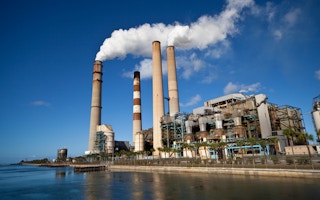Global emissions of carbon dioxide in the energy sector stalled in 2014, breaking steady rises over the past four decades except in years with an economic downturn, the International Energy Agency said on Friday.
Emissions of carbon dioxide were flat at 32.3 billion tonnes in 2014 from 2013, according to the IEA.
“This is both a welcome surprise and a significant one,” IEA chief economist Fatih Birol said in a statement.
“This gives me even more hope that humankind will be able to work together to combat climate change, the most important threat facing us today.”
The Paris-based IEA, which advises governments of developed nations, said the halt in emissions growth was linked to greener patterns of energy consumption in China, the top carbon emitter ahead of the United States, and in developed nations.
“In China, 2014 saw greater generation of electricity from renewable sources, such as hydropower, solar and wind, and less burning of coal,” it said.
Birol said the data provide “much-needed momentum to negotiators preparing to forge a global climate deal in Paris in December: for the first time, greenhouse gas emissions are decoupling from economic growth.”
A summit in Paris is due to agree a deal to limit global emissions, blamed by a UN panel of climate scientists for causing more heatwaves, floods and rising sea levels. The IEA said that carbon emissions had been flat or fallen only three times since it started collecting data 40 years ago, previously always linked to economic slumps – in the early 1980s, 1992 and 2009.
In 2014, however, the global economy expanded by 3 per cent.
“These figures show that green growth is achievable not just for Britain but for the world,” said British Energy and Climate Change Secretary Ed Davey.
“However we cannot be complacent – we need to dramatically cut emissions, not just stop their growth.”










